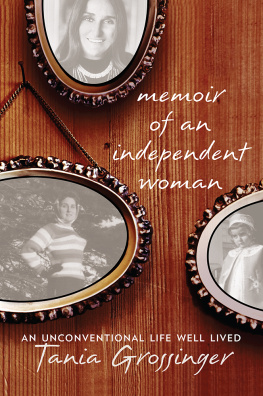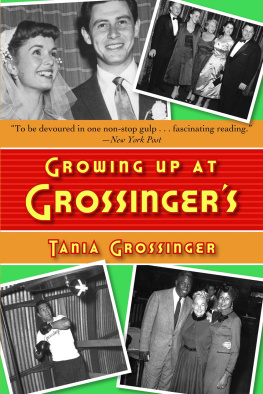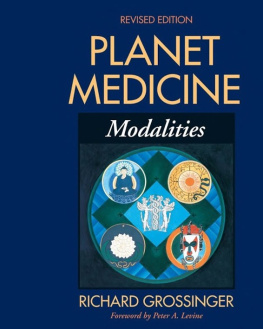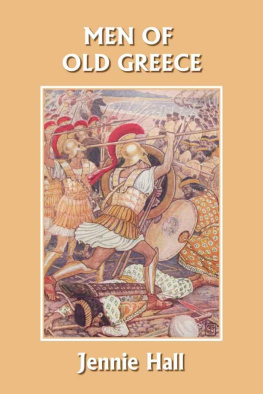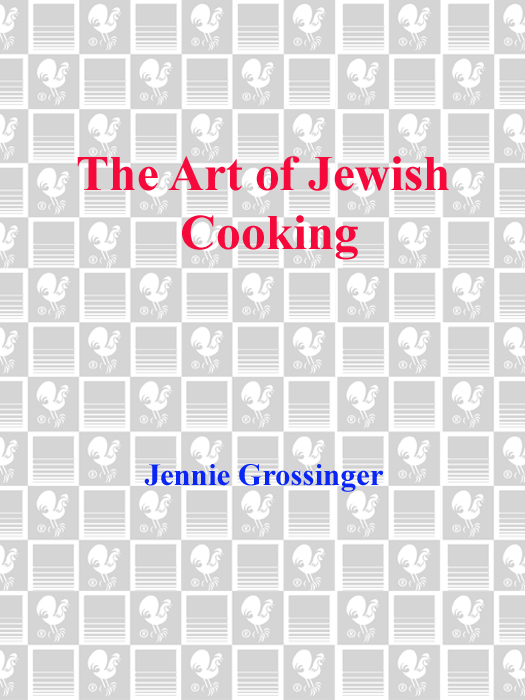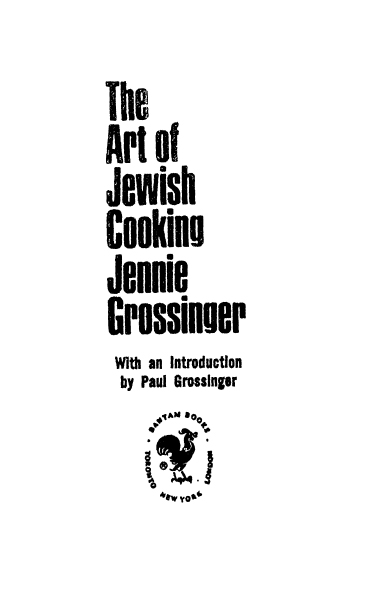THE ART OF JEWISH COOKING
A Bantam BookRandom House edition published June 1958| 2nd printing | April 1959 |
|---|
| 3rd printing | January 1960 |
|---|
| 4th printing | March 1961 |
|---|
| 5th printing | January 1962 |
|---|
| 6th printing | April 1963 |
|---|
| 7th printing | October 1964 |
|---|
Bantam edition published March 1960| 2nd printing | March 1960 |
|---|
| 3rd printing | April 1960 |
|---|
| 4th printing | October 1960 |
|---|
| 5th printing | February 1961 |
|---|
Bantam Reference Library edition published March 1962| 7th printing | October 1962 |
|---|
| 8th printing | September 1963 |
|---|
| 9th printing | May 1964 |
|---|
Bantam Cookbook Shelf edition published October 1965| 11th printing | May 1966 |
|---|
| 12th printing | March 1967 |
|---|
| 13th printing | December 1967 |
|---|
| 14th printing | May 1968 |
|---|
| 15th printing | January 1969 |
|---|
| 16th printing | July 1969 |
|---|
| 17th printing | October 1969 |
|---|
| 18th printing | |
|---|
All rights reserved under International and
Pan-American Copyright Conventions.Copyright 1958 by Random House, Inc.This book may not be reproduced in whole or in part, by mimeograph or any other means, without permission.For information address: Bantam Books, Inc. eISBN: 978-0-345-54100-0
Bantam Books are published by Bantam Books, Inc., a National General company. Its trade-mark, consisting of the words Bantam Books and the portrayal of a bantam, is registered in the United States Patent Office and in other countries. Marca Registrada. Bantam Books, Inc., 666 Fifth Avenue, New York, N.Y. 10019. v3.1
Contents
In this book you will find some recipes which specify the use of either butter or fat. If you wish to cook according to strict dietary observances, you will cook such dishes with fat if they are to accompany meat, with butter if they accompany dairy products.For observers of the Kashrath: With regard to all recipes having liver as an ingredient, it should be noted that the liver is first to be broiled over an open flame.Introduction
MOMS IN THE KITCHEN
Since I am neither Josephine McCarthy nor Clementine Paddleford, you may well ask what I am doing writing an introduction to this cookbook.
Well, Ive been around kitchens all my lifemy father saw to thatand certainly I am an authority on the cooking done by the author of this particular book, Jennie Grossinger. Ive been an ardent admirer of her cookery all the years of my life. For she is my mother. More than most women, Mom had to be a good cook. For if a good cook is the heart of the American home, how much more so is a good cook the heart of the American-plan hotel? Mom is past the crying-over-the-onions and the dish-washing phases of cooking. Grossingersthe institution which her smile, her struggles, her love for people, and her way with a saucepan helped to buildnow has a pretty good-sized crew of chefs and bottle-washers to handle such matters.
She and her mother, Malke Grossinger, assembled the recipes. My sainted grandmother used to say: We must never let anyone go away from Grossingers hungry. That guiding principle together with a characteristic warmth and humanity, a concern for people that went far beyond the ordinary hotel owner-guest relationship are perhaps the two cornerstones that helped build a resort that now sprawls over 1,000 acres of Gods good earth and is known in the furthest corners of the globe. Ever since I can remember, Grossinger women have taken pride in their activities in that most important room of the house, pride and joy in placing on their tables food that was as good as it was plentiful. And it even goes back beyond the days that I can remember. For it comes down to this.
French cuisine may be famous for its Escoffier. Italian for its Alfredo. But Jewish cookingwell, for generations and generations, way back to Sarah, Rebecca and Rachel, the master chef has always been the mistress of the particular tent: Mom. Mother used to tell me about her early days on New Yorks crowded East Side, when she came to this country as a seven-year-old immigrant girl. She remembers the hallways of the ancient tenements on Hester and Essex streets not for their dinginess, although there was plenty of that. She recalls the cooking aromas wafted out from beneath apartment doors when she came home from public school.
On the ground floor, perhaps the corned beef and cabbage of an Irish family, heavy and pungent. On the next landing, an Italian familyand the air would be full of the aromatic blending of ripe tomatoes, garlic, olive oil, oregano, and all kinds of other wonderful mouth-watering exotic scents. But she was happy that the next doorway was hers, for it would have been impossible for her to pass it by. From behind it, came the delicate but rich Sabbath-preparation smellsof chicken simmering in the pot, of golden soup with feather-light matzo balls floating in it, maybe even the delicious aroma of freshly baked challah. Food has always been important to the Jewish family, not for itself alonealthough it is certainly appreciatedbut as a gift from the Lord, which therefore gives it special significance at the most important occasions in life. At a wedding, the bride and groom eat something sweetfor a sweet life together.
And the same is true on the Jewish New Year, Rosh Hashonahthis time, for a sweet year. A Jewish cookbook can be almost considered a history booka history of 5700 years of happiness and sorrow. Just one instancethe latke (pancake), which the wives of the soldiers of the ancient hero Judah Maccabee hurriedly cooked for their men behind the lines, as they united to drive the Syrians out of their land. Italian cooking is built around pasta, the traditional tomato sauce, and olive oil and special spices; Mexican cooking around hot foods, corns, peppers; French around wine. If you tire of these things, you might as well leave the country. But Jewish cooking, since the kettles of the Hebrews have simmered in every country of the world since the Dispersion many centuries agois never monotonous, but thoroughly international in flavor.
All it requires is good ingredients and plenty of them. Jewish cooking is truly a Melting Pot. It has tasted of the spices of Italy, the herbs of the Slavic countries, the tender lamb of Israel, and the goulash of Hungary and middle Europe. Yes, and the potatoes of Ireland, as the Lord Mayor of Dublin testified when he visited Grossingers. All these things, adapted to the requirements of Jewish law, were brought to the American melting pot by immigrants of the Jewish faith. All these things have made Jewish cooking worldly and sophisticatedthough always home styleand particularly delicious.


